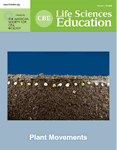The Quiz Factor
While participating as one of the instructors at the 2005 National Academies Summer Institute on Undergraduate Education in Biology, I attended a talk by Dr. Mark McDaniel that revolutionized the way I thought about teaching, and provided an interesting insight into student study practices and learning. In brief, repeated studying turns out to be relatively ineffective in enhancing learning, whereas testing after studying has a beneficial effect. Unfortunately, few students or faculty seem to be aware of this finding, or incorporate it into their pedagogical practices. After reading a recent paper in Science on a related topic (Karpicke and Roediger, 2008), I decided that the points raised by Dr. McDaniel and colleagues need to be highlighted in a journal that is read by life sciences faculty members.
One of my concerns is that Dr. McDaniel is a professor of psychology, and accordingly, the paper describing his studies that I found so intriguing is published in the European Journal of Cognitive Psychology (EJCP; McDaniel et al., 2007), which is probably not on the reading list of most life scientists. Therefore, I summarize what I consider to be the most pertinent points of this research:
Taking a test after studying promotes learning and retention.
Quizzing, but not additional reading of the same material, improves subsequent test scores.
Short-answer quizzes produce better results than multiple-choice quizzes.
Dr. McDaniel refers to the “testing effect” to explain memory gains that result from testing after reading. Most students study by reading the assigned material (usually right before the exam, hence one problem with infrequent testing), then rereading it, sometimes repeatedly. Many students will underline or highlight the text, ending up with essentially yellow pages, but not having gained any further understanding or ability to recall the information. For many students there is simply too much material and too little guidance on what is truly important. Taking a quiz after the reading immediately points out what material was or was not learned appropriately. Quizzing with feedback (either going over the quiz in class, or allowing the students time to consider their answers and subsequently reviewing the graded quiz) provides a more positive learning outcome than multiple readings without quizzes.
The issue of multiple-choice versus short-answer quizzes also seems to be of tremendous importance because I know that many instructors rely on the former due to the ease of grading. In addition, the current surge of interest in personal response systems (“clickers”) increases the use of multiple-choice questions. However, as Dr. McDaniel notes, in many circumstances retrieval through recall (i.e., having to generate a short answer) generates better performance on subsequent tests than retrieval through recognition (i.e., recognizing the correct answer on a multiple-choice exam). In fact, in the 2007 study, multiple-choice quizzes produced results that were only slightly better than repeated reading without quizzes.
The recent paper in Science reinforces these points and reports that repeated testing, but not repeated studying, improves delayed recall (i.e., long-term retention). This paper notes that many people view testing as a neutral event, primarily for determining grades (summative), whereas studying by itself is considered the main method for learning. Thus, the formative aspects of testing are not taken into account. Furthermore, this paper draws an important distinction between the use of different methods that rely on repetition. I have repeatedly heard colleagues argue that repetition of subject matter in one course after another is not only permissible, but is necessary to allow students to learn. However, the Science and EJCP papers make it clear that repetition is not useful if it simply relies on having students read the same material (or presumably listen to it in a lecture) without the use of frequent testing.
With regard to my own Introductory Biology course, I have moved away from the standard lecture format and utilize an active-learning approach that incorporates frequent quizzes that are graded and returned by the next class session (Klionsky, 2004). However, my reasons for using quizzes were relatively mundane; a daily reading quiz ensures that the students keep up with the reading, relieving me from the time-consuming—and largely time-wasting—burden of lecturing. When I began to use this format I did not realize that there were additional benefits. The first time I taught after hearing Dr. McDaniel's talk, I noticed something that I was previously unaware of: As soon as the quizzes are collected, the students pull out their notes to see what they could not remember, or to verify that their answers on the quiz were correct. I now think that some of the most important learning occurs during this time, and it does not involve my doing anything, other than being patient. That is, I no longer rush into the day's topic. Instead, I look through the quizzes to quickly see how the students performed so I can adjust my coverage of the material (e.g., with a short, impromptu lecture on a particular topic if necessary). That time also provides the students with an opportunity to look at their notes and discuss their answers with their classmates; the latter requires no urging on my part. Considering the lessons from the papers I have highlighted, it is interesting to contrast the frequent quiz/feedback approach with the standard course that relies on one or two midterms and a final exam.
Frequent quizzing presents a considerable burden, especially when the exams incorporate substantial numbers of short-answer questions. However, I think we need to keep the research on learning and memory in mind when designing our courses. After all, the goal is to facilitate learning, not to continue using an antiquated approach to teaching simply because it is easy and was the way we were taught.
ACKNOWLEDGMENTS
This work was supported by a grant from the Howard Hughes Medical Institute Undergraduate Science Education Program.



